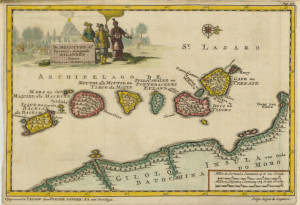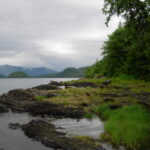Maz Ali ~ I Never Realized How Dumb Our Cities Are Until I Saw What A Smart One Looks Like
 With the population growing and most of it happening in cities, these Canadian journalists wanted to take a closer look at whether our sprawling modern villages are up to the task of housing more humans.
With the population growing and most of it happening in cities, these Canadian journalists wanted to take a closer look at whether our sprawling modern villages are up to the task of housing more humans.
Over half of the world lives in urban areas. That includes over 80% of people in the United States and 81% of folks in Canada, where this report was produced. Therein lies the problem.
Read more: http://www.upworthy.com/i-never-realized-how-dumb-our-cities-are
Alexis Stephens ~ From Sea To Vacant Lot: A Shipping Container Condo Rises In Newark
When it comes to building more affordable housing, you can get creative with financing — or you can completely rethink the single-family home.
Eschewing traditional construction materials, a team in Newark, New Jersey, is building a three-family home out of 18 shipping containers on a vacant lot, an approach that’s becoming more popular in design circles.
“Tiny living” enthusiasts have been raving about container houses for years, but the trend has just moved stateside fairly recently. So far, models have ranged from high-end (and high-priced) extravagance to off-the-grid boxes at bargain prices. Development partners Cor10 Concepts and Community Asset Preservation Corporation (CAPC) are shooting for somewhere in between; they hope that their first dwelling, built in Newark’s historic Lincoln Park neighborhood, will jumpstart other forward-thinking design projects in the stagnant housing market.
Read more: http://nextcity.org/shipping-container-condo-newark-housing
Plotting A Better Life In Ugandan Slums
This film explores how Uganda’s National Slum Dwellers Federation (NSDF) is working with local NGO ACTogether to mobilise slum communities in Kampala. It focuses on the informal settlement of Kibuye, one of Kampala’s 63 slums, capturing everyday life and documenting how technology is helping the community participate in decisions that affect their quality of life.
Historically, the Kampala Capital City Authority has had little information about the make-up of the city’s slums — and what it did have was outdated. ACTogether and the NSDF have engaged the residents of the slums, helping them to map their own neighbourhoods, and detailing both the demographics and the locations of physical structures such as toilets.
ACTogether set up forums in which residents and other stakeholders, including city authority officials, use the knowledge gained from mapping to discuss issues affecting the community, empowering residents to start taking control of life within the slums.
ACTogether is also keen to increase the involvement of academics in the slums’ future planning. It initiated the “Urban Studio” project a partnership with Makerere University in which students spent time interacting with residents and learning first-hand about life in the slums — something that was missing from their academic courses.
Political Capitalism, Overseas Trade And Ethnic Diversity
 The aim of this paper is to remind modern researchers studying modern, post-Soeharto Indonesia of the research on the history of political capitalism in Asia, including the Indonesian Archipelago done by the Dutch scholar Van Leur. While preparing his well known thesis on the Asian Trade system, he concluded that the Indonesian island group has a bipartite geopolitical structure. This structure consists of a maritime zone of sea routes and coastal urban centres dominated by local and interregional political capitalism, and a peripheral part that stands partly on its own and is in part connected to the first zone. The question he asked was why the Asian type of political trade capitalism had been able to survive for such a long time and had even had been continued by the V.O.C., while in Europe this form of capitalism had long disappeared.
The aim of this paper is to remind modern researchers studying modern, post-Soeharto Indonesia of the research on the history of political capitalism in Asia, including the Indonesian Archipelago done by the Dutch scholar Van Leur. While preparing his well known thesis on the Asian Trade system, he concluded that the Indonesian island group has a bipartite geopolitical structure. This structure consists of a maritime zone of sea routes and coastal urban centres dominated by local and interregional political capitalism, and a peripheral part that stands partly on its own and is in part connected to the first zone. The question he asked was why the Asian type of political trade capitalism had been able to survive for such a long time and had even had been continued by the V.O.C., while in Europe this form of capitalism had long disappeared.
Today these questions once again become interesting as we become progressively aware that, on both the national and the regional level, the Soeharto regime that fell in 1998 was fuelled by a type of political capitalism that came close to what had existed during pre-colonial and early colonial times. And thus the question of the continuity of political capitalism returns to the agenda of modern Asia research.
In the introduction I pointed out that Indonesia’s recent ethnic tensions occurred especially in the coastal cities and coastal areas where Indonesia’s strategic resources are located, and not to any great degree in the interiors of the major islands. In the course of Indonesia’s long history, many ethnic groups have evidently settled in and around the coastal cities, where they live together. This geographical curiosity has its roots in Indonesia’s past as an international emporium and trade port in the overseas trade between India en China, as well as at certain times between Asia and Europe. This trade needed ports of call [i] under the control and protection of local rulers. These rulers allowed foreigners [ii] that contributed to the settlement’s trade to settle in their own wards with their own heads and courts. These wards had a certain measure of diplomatic immunity, turning the ports of call into places with an international population. In this context, foreign businessmen and traders became the driving force behind maritime Asia’s coastal economy. The geographical position of the urban settlements in the archipelago and their mixed populations has not fundamentally changed in the past two thousand years, as is evident from maps 1 through 2.
The question that arises from this historical continuity is whether the underlying political and economic systems have remained unchanged as well. The answer is partly yes and partly not. Partly yes, because, as will become clear in this chapter, the central organizing factor behind the distribution of coastal cities and ethnic communities has been political capitalism, both then and now[iii]. Partly not, because the modern form of political capitalism in Asia, to wit the nationalistic side of the modern nation-state, subjects everything within its borders to its authority and mistrusts foreign businesses and capital because of their excessive power in the world-markets and their danger to the domestic market. Read more
Al Jazeera ~ Gert Corba ~ Uganda: Queen Of The Slums
Those who are born in the hopeless slums of Kampala start with a setback in life, and being born a girl doubles this setback.
In Kibuli, a slum community of single mothers and neglected children, the youth learn to survive the hard way.
But mostly they learn from a young age to accept their miserable situation.
This also applies to Phiona,14, who lives with her chronically-ill mother in a shack with walls made of corrugated iron.
But when a social worker teaches the poor girl how to play chess, her slum life takes an amazing turn.
See: http://www.aljazeera.com/etterfrommychild
Ken Worpole ~The Law Of The Forest And The Freedom Of The Streets

“ This was the order of human institutions: first the forests, after that the huts, then the villages, next the cities, and finally the academies.”
Giambattista Vico, The New Science
‘What the fuck do you think an English forest is for?’ raged Johnny ‘Rooster’ Byron, when served with a notice to move his caravan from its woodland clearing, in Jez Butterworth’s 2009 anti-Arcadian play, Jerusalem. The kids who come there, he claimed, are safer than at home. This is where the wild things are. The opening stage direction: ‘England at midnight’.
Butterworth’s explosive ‘state of the nation’ drama raised many questions about the state of the nation. In a highly urbanised society, talk of the ‘meaning’ of the forest today might seem anachronistic. Yet it raises anew the spectre of waking up to find that many historic freedoms–about rights to roam and freely associate (and on occasions run foul of the law)–have been subtly suborned, or deleted.
As the 1215 Magna Carta is being celebrated, it is a good time to remember its significant addendum, the 1217 Charter of the Forest. The Forest Charter formalised the right of unbonded men to access and use of the goods of the royal forests (grazing, fuel, food), while implicitly assuming the right to wander freely in the landscape as well as providing a place of refuge for those cast out of the social order. Forest sentiments still run deep, it would seem. It was public protest against the sale of Forestry Commission woodlands which prompted the first political turnaround of the present Coalition government in 2011.
Read more: https://www.opendemocracy.net/law-of-forest
- Page 2 of 3
- previous page
- 1
- 2
- 3
- next page



